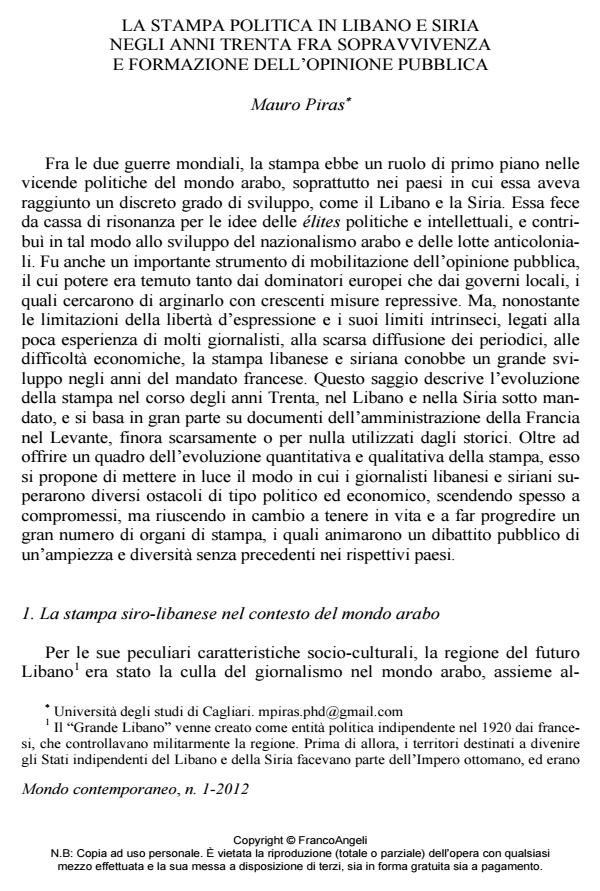The Political Press in Lebanon and Syria in the 1930s Between Survival and Formation of the Public Opinion
Journal title MONDO CONTEMPORANEO
Author/s Mauro Piras
Publishing Year 2012 Issue 2012/1
Language Italian Pages 32 P. 35-66 File size 415 KB
DOI 10.3280/MON2012-001002
DOI is like a bar code for intellectual property: to have more infomation
click here
Below, you can see the article first page
If you want to buy this article in PDF format, you can do it, following the instructions to buy download credits

FrancoAngeli is member of Publishers International Linking Association, Inc (PILA), a not-for-profit association which run the CrossRef service enabling links to and from online scholarly content.
The 1930s witnessed an unprecedented development of the periodical press in Lebanon and Syria, despite the obstacles represented, on the one hand, by the growing censorship exercised by the authorities, and on the other hand, by the economic crisis which caused great problems for a still weak sector. This paper first describes the legislation and the repressive practice of the authorities, adopted in order to control the attitude of the press; then emphasizes the role of subventions, coming both from the local government and the French administration, and from foreign governments, or various kinds of interest groups, in allowing newspapers with an extremely narrow circulation to face a precarious political and economic situation. It then describes the quantitative and qualitative growth of the press in the French mandate, especially in the capital cities of Beirut and Damascus, and finally draws some conclusions about how the survival strategies of Arab journalism shaped the distinctive characters of the Syrian and Lebanese press between the wars.
Keywords: Syria, Lebanon, French mandate, Arab press, Arab journalism, subventions
Mauro Piras, La stampa politica in Libano e Siria negli anni Trenta fra sopravvivenza e formazione dell’opinione pubblica in "MONDO CONTEMPORANEO" 1/2012, pp 35-66, DOI: 10.3280/MON2012-001002